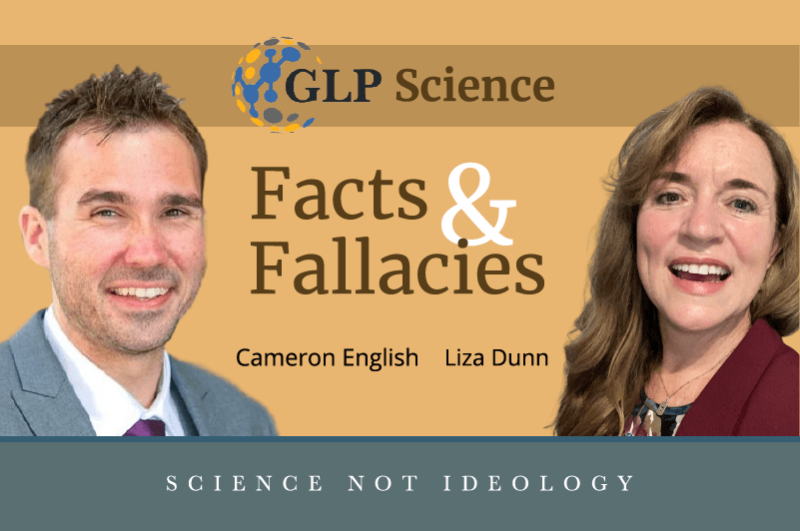Podcast:
Join hosts Dr. Liza Dunn and GLP contributor Cameron English on episode 262 of Science Facts and Fallacies as they break down these latest news stories:
Vaccines have been maligned for years — and a common myth is making the rounds again. An anonymous antivax quack who goes by the name “A Midwestern Doctor” claims that mRNA COVID vaccines “shed”, potentially endangering patients. Vaccine shedding, or viral shedding, happens when a vaccine releases parts of a virus, resulting in the spread of an infection. Has this mystery doc uncovered a secret public health officials don’t want you to know — or are they fanning fears about something that “for all intents and purposes is impossible?” In an abundance of caution, live attenuated virus vaccines (shots that use a weakened version of a virus to train the immune system) are not recommended for severely immunocompromised people (and sometimes family members) because they may cause infection. However, mRNA vaccines are not LAVs. The Pfizer-BioNTech and Moderna COVID vaccines are mRNA vaccines, while the Novavax COVID vaccine is a protein subunit vaccine. None of the COVID vaccines cause shedding. Let’s go through the science one more time.
From scientists to journalists to public health officials, it’s become axiomatic that eating less meat is good for you and the environment. But increasing data, including a new Canadian study, throws cold water on that belief. Meat alternatives can reduce carbon footprint by half, but plant-based milk options are much less impactful — and may have real consequences for our nutrition. Journalist Emma Bryce explains why we need more data — and why this debate is far more nuanced than even many experts appreciate.
Dr. Liza Dunn is a medical toxicologist and the medical affairs lead at Bayer Crop Science. Follow her on X @DrLizaMD
Cameron J. English is the director of bio-sciences at the American Council on Science and Health. Visit his website and follow him on X @camjenglish































